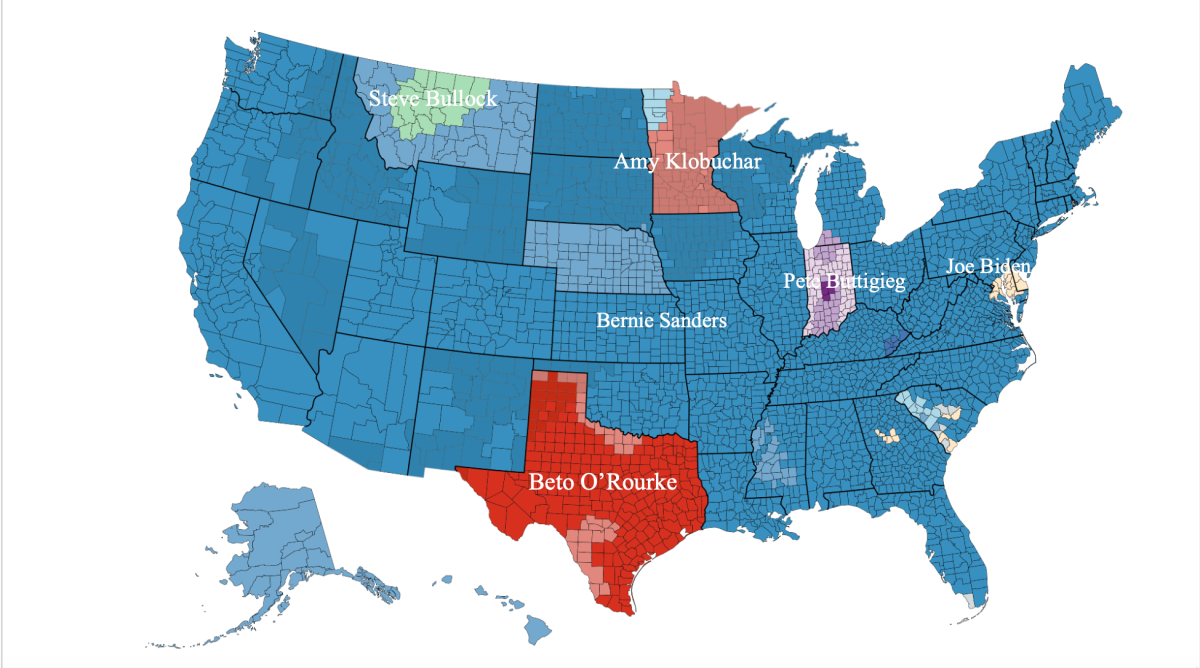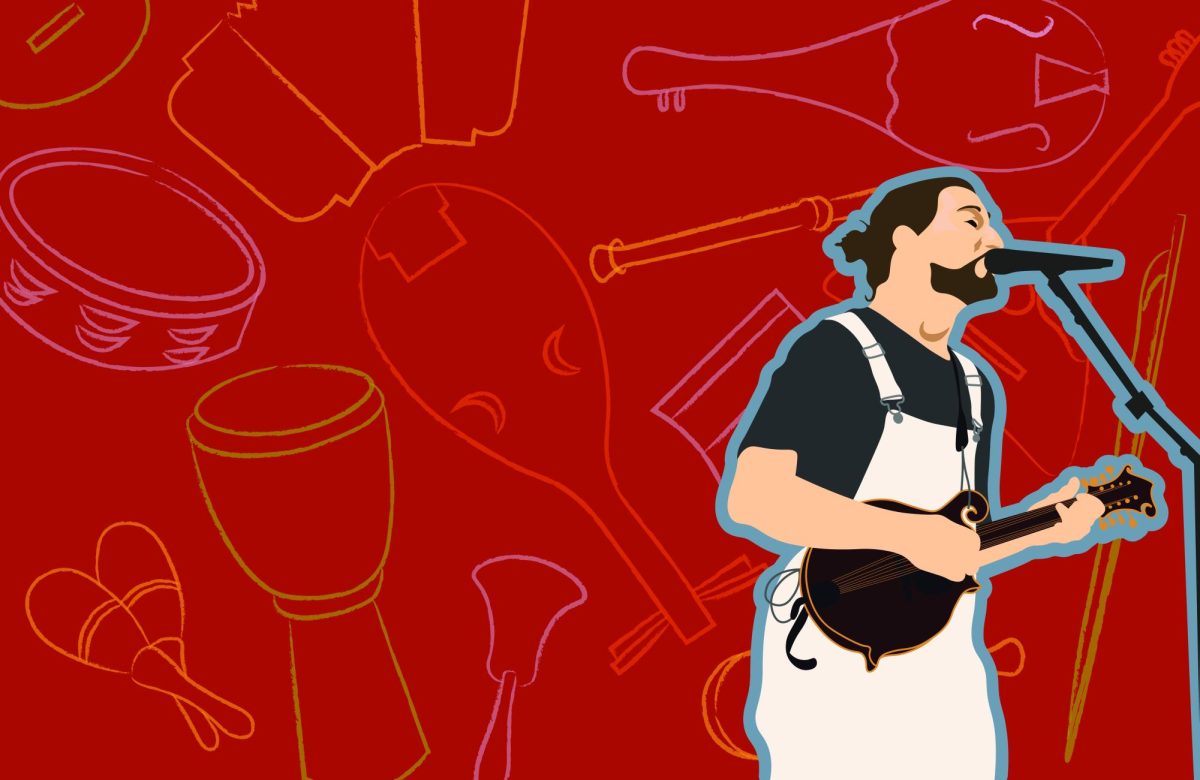It is 2019, and I am 17 years old, sitting in the passenger seat of my best friend’s Jeep. The newest “Call Her Daddy” podcast episode plays in the background as we drive home from school. My best friend takes a sip of her smoothie and Alex Cooper says, “Cheat or be cheated on.” I complain about the AC and Sofia Franklyn says, “Guys love the crazy.” In the same episode, they laugh at how ridiculous it is that they were nominated for Best Advice & Inspirational Podcast of the Year, and my best friend tells me she is glad they are not trying to be something they are not.
In 2019, “Call Her Daddy” reigned as a popular podcast because it was unashamed in its messy, “cool girl” aesthetic. Despite the vaguely misogynistic undertones and the co-hosts’ frequent “I’m not like other girls” stance, “Call Her Daddy” remained popular because it felt genuine. The hosts were Alex Cooper and Sofia Franklyn, two 20-something-year-olds who were best friends living in New York City and oversharing their personal lives. At the time, they were only making $60,000 a year on their podcast and were virtually unknown outside of “Call Her Daddy,” which was part of the appeal.
In recent years, podcasts have grown exponentially and many influencers have begun to hop on the wave. The problem with the new podcasters is their lack of authenticity. Most of the influencers who began a podcast did so after they were already established on a social media platform. They had already made millions through brand deals and sponsorships, and their often abrupt announcements that they are starting a podcast felt like a money grab. Because of this, the influencers often speak in a way that makes it clear they are out of touch with their audience, and the backlash they receive highlights their dissociation.
Popular TikTok influencer, Alix Earle, began her podcast, “Hot Mess,” in September 2023. In the past few months, she has received backlash for centering many of her stories around her poor hygiene, such as keeping a vomit-covered dress in her closet for a year or having piles of dead cockroaches in her old apartment.
In a time where the “clean girl aesthetic” is so popular, the general public expressed disgust toward her admissions and labeled her as dirty. While Earle was likely trying to be funny or relatable, the disconnect she has from her audience resulted in an adverse effect.
Earle is not the only influencer who has gotten flak from their podcast. The popular podcast “BFFs” has received plenty of backlash, the most recent incident being when the hosts responded to a viral TikTok of a recent college graduate talking about how difficult it is to balance a work-life schedule at a time when many people are struggling to afford their lifestyles. The hosts of “BFFs” responded by saying, “That’s life,” and, “Find a new job then, we did.”
The hosts, Josh Richards, Brianna “Chickenfry” LaPaglia and Dave Portnoy, have an estimated combined net worth of $157 million and were met with immediate fallout due to their obnoxiously out of touch response to a situation they will never have to face.
The common theme between these influencers and their controversies is that they are not genuine. Rather than embracing their lifestyle or ignoring it completely, they try to relate to struggles they have never experienced. It is difficult to not roll your eyes when an influencer worth $5 million for copying other people’s dances on TikTok in 2019 tells you to stop complaining about an impending recession.
This is not to say that all celebrity podcasts are out of touch, however. “New Heights” with Jason and Travis Kelce is highly rated because they are football players who talk about football. While they occasionally touch on pop culture and their personal lives, the brothers stick to subjects they are familiar with and admit when they are not knowledgeable enough to speak on a topic.
“The Joe Rogan Experience” is another podcast that remains popular, although it is not immune to backlash. Joe Rogan has notably faced major controversy for some of his outlandish opinions and conspiracies. While I am not a fan of him or his podcast, it does not matter what I think of him because I am not his target audience. Rogan is able to stay highly rated despite what he says because he has cultivated such a loyal audience who have proven time and time again that they will continue to support him through anything.
This unwavering support is something that influencers who were established on other social media platforms before turning to podcasts do not have. They generally have a large following, but audiences from a short-form media like TikTok do not always translate over to hour-long podcasts. Podcasts force influencers to be more socially conscious, and when they are faced with a more varied audience than they are used to, they often miss the mark.
The original version of “Call Her Daddy” died in 2020 after the dissolution of Franklyn and Cooper’s friendship. While this was a huge deal at the time, I think it saved both of the girls’ careers in the long run. Franklyn and Cooper are both successfully hosting their own podcasts now, both of which have an interview-style format and are missing the drama and juiciness of the 2019 “Call Her Daddy.” That being said, I am glad their podcasts are more mellow now. If they tried to replicate their 2019 podcast, it would most likely fall short, partially due to the fame and wealth they have amassed since then, but also because the misogynistic advice and locker room stories just are not relevant anymore.
While reputable podcasts align themselves with the culture and trends that their audience relates to, influencer podcasts tend to fall short. Some influencers just want to talk, so rather than starting yet another podcast with unrelatable stories and “hot gossip” that’s just regurgitated Daily Mail articles, I recommend a diary and a reality check.
Kaitlyn Mitchell is an opinion writer. Contact her at [email protected].




